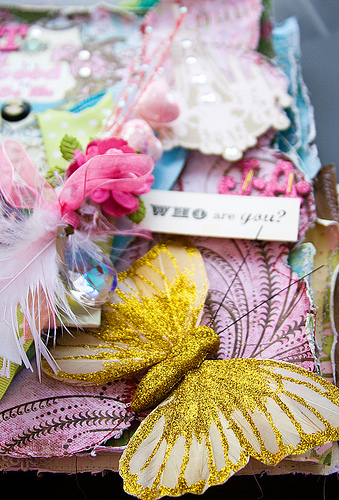Why There’s Power In Your Story
I know I’ve stated before that it is oh-so important to establish your “why” when competing for a title.
The reason for that “why” is the foundation for how to
convince and communicate to the judges your unique reasoning for why they
should choose you as the winner.
How you go about explaining your “why,” is what will make or
break you. We all know that to have any chance at winning, we need to be
memorable, we need to have the judges fall in love with us and the best way to
do that is with storytelling.
Science behind
storytelling
There is scientific reasoning for why telling a story in
your interview is your best bet to get the judges to remember you:
The brains of the person telling a story and
listening to it can synchronize, says Uri Hasson from Princeton:
"When the woman
spoke English, the volunteers understood her story, and their brains
synchronized. When she had activity in her insula, an emotional brain region,
the listeners did too. When her frontal cortex lit up, so did theirs. By
simply telling a story, the woman could plant ideas, thoughts and emotions into
the listeners' brains."
Why stories are important
In a recent article I read, Jennifer Aaker, a marketing
professor at Stanford’s Graduate School of Business, says that neuroscience
studies show that our brains are made to remember stories more so versus data,
facts and figures.
“When most people advocate for an idea we think of a
compelling argument, a fact or a figure,” she explains in a video on
Leanin.org. “But research shows that our brains are not
hard-wired to understand logic or retain facts for very long. Our brains are
wired to understands and retain stories.”
Aaker offers three reasons why stories are important:
1. Stories shape how people see you.
Research shows that stories that other people tell about you influence how they
see you, whether they want to hire you, or whether they want to buy something
from you. This is important for you as a
contestant because you want the judges to see you as the girl for the title!
2. Stories are tools of power. “When you
tell a story, people slow down and listen,” says Aaker. “Listening is a form of
power as well.” A good story will
captivate a judge and lead them to thinking you should be the one to win.
3. Stories persuade and move people to action.
They’re a tool to advocate for your idea, your cause, or your company. Or in your case, it’s your tool to capture
the crown!
Creating an effective story
I wanted to also include the four questions Aaker says
you should ask when crafting your story:
1. Goal. Why you’re telling the
story in the first place and what you want the audience to do, think, and feel
after they hear the story?
2. Grab Attention. Why the audience would want to listen?
3. Engage: Why the audience cares?
4. Enable Action. Why would the audience want to share the story or co-create it with others?
2. Grab Attention. Why the audience would want to listen?
3. Engage: Why the audience cares?
4. Enable Action. Why would the audience want to share the story or co-create it with others?
“Everyone needs a signature story,” says Aaker. “The most
powerful signature stories are those that take the audience where you want them
to go.”
*****
Was this post helpful? Is there any advice or a certain topic you'd like me to write about? Let me know! Carolina@TrueBeautyProgram.com



Comments
Post a Comment